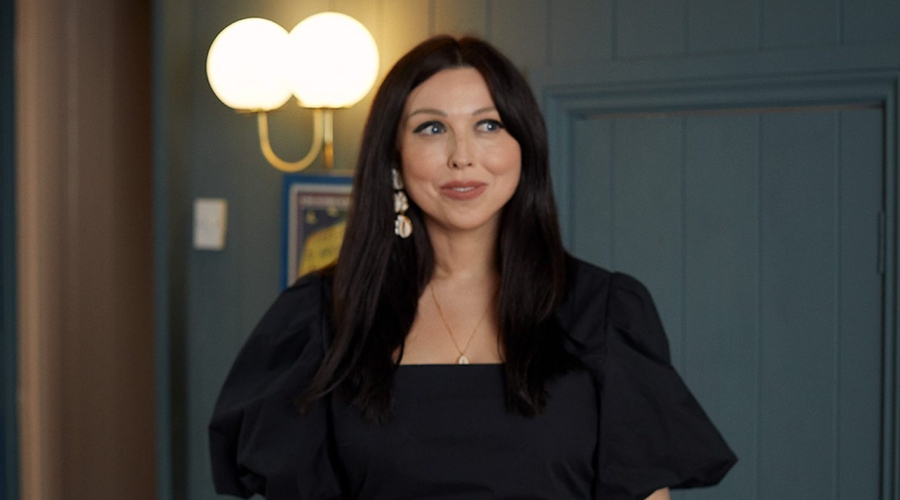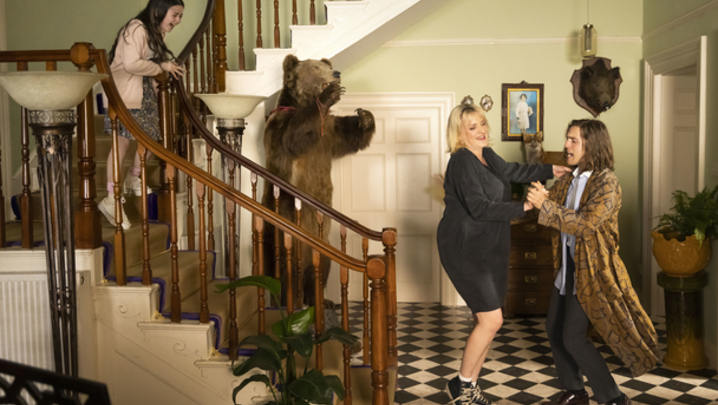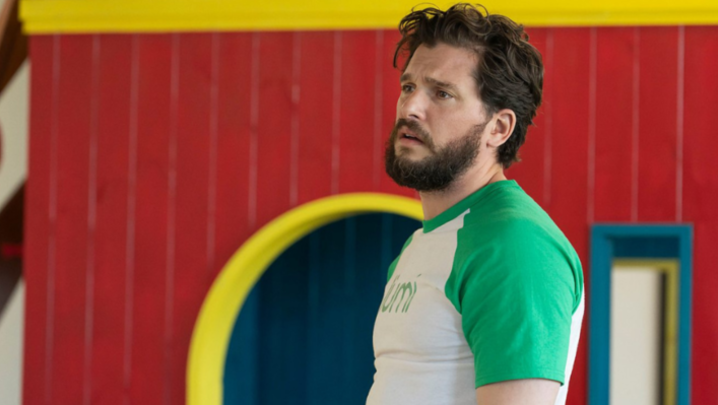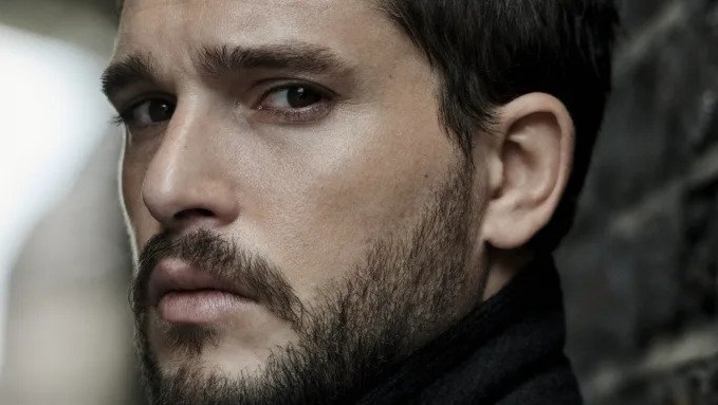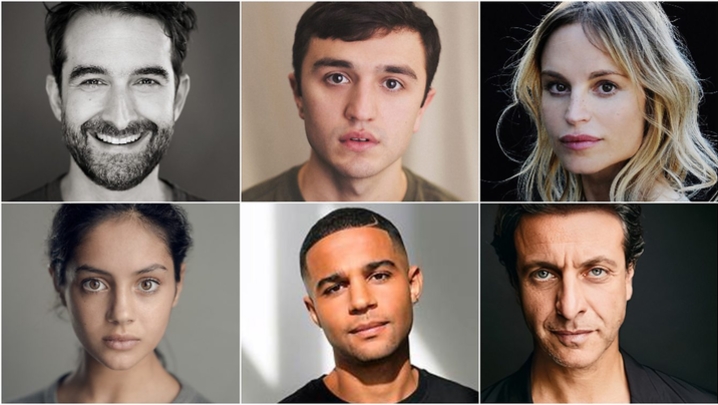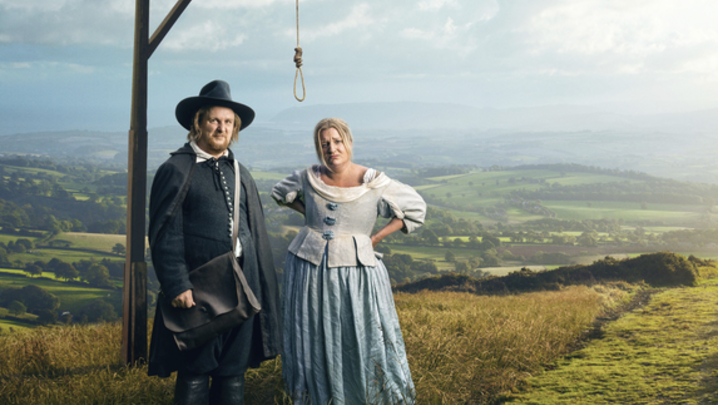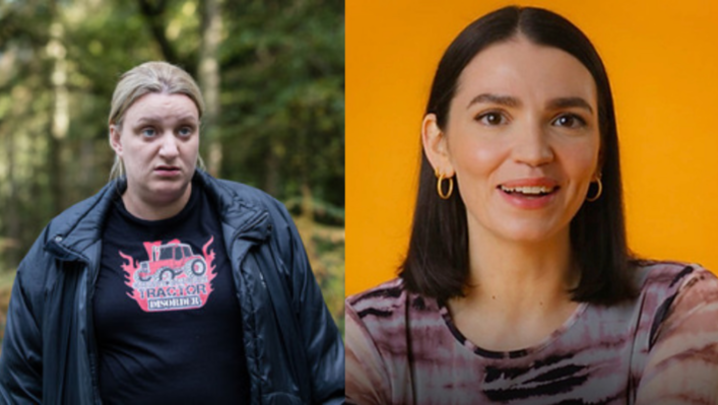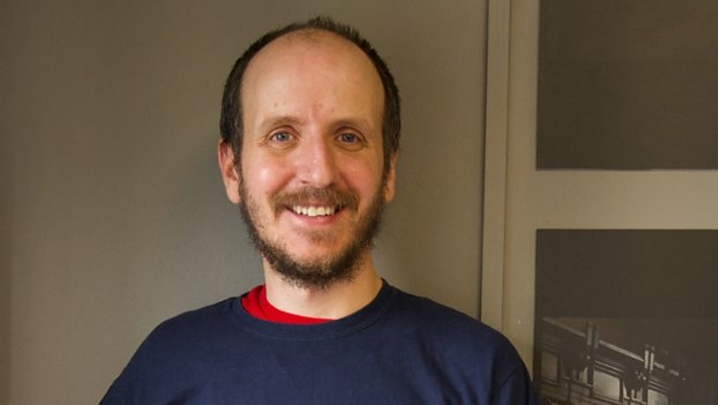“I’m often asked about writing from the perspective of a working-class woman,” says the writer Cash Carraway, sitting in a café in Battersea Power Station. “I think that's because we don't see or hear those stories often. It's not normal, is it?”
We’re meeting to discuss one of those stories. Carraway’s debut TV show, Rain Dogs, the brilliant dark comedy she created, wrote and executive produced with BBC and HBO, premiered earlier this year. She’d had TV developments in the past, “but nothing ever got off the ground because my life was too chaotic,” she explains. “I just wasn't ready.”
Carraway has been writing her whole life. But the stories, blogs, sitcoms and screenplays had always accompanied a slew of low paid and insecure jobs as she grinded to make ends meet. Her life transformed after her memoir, Skint Estate, was published in 2019. The book chronicled Carraway’s experiences living in poverty whilst raising a child single-handedly through 2010s austerity Britain. She lived in and out of women’s refuges, worked hard for minimum wage, and had to use food banks to get by. This accompanied a brutal carousel of temporary, expensive, and unsuitable accommodation for her and her daughter.
Skint Estate may sound like grim reading, but Carraway insists the book wasn’t miserable. “It was this jaunt through the gutter in a Bukowskian way,” she says proudly, referring to the legendary transgressive fiction writer. “And it was fun. I was revelling in the dirt.” Sniffling with a cold but still smiling, Carraway seems to know how to make the best of a bad situation.
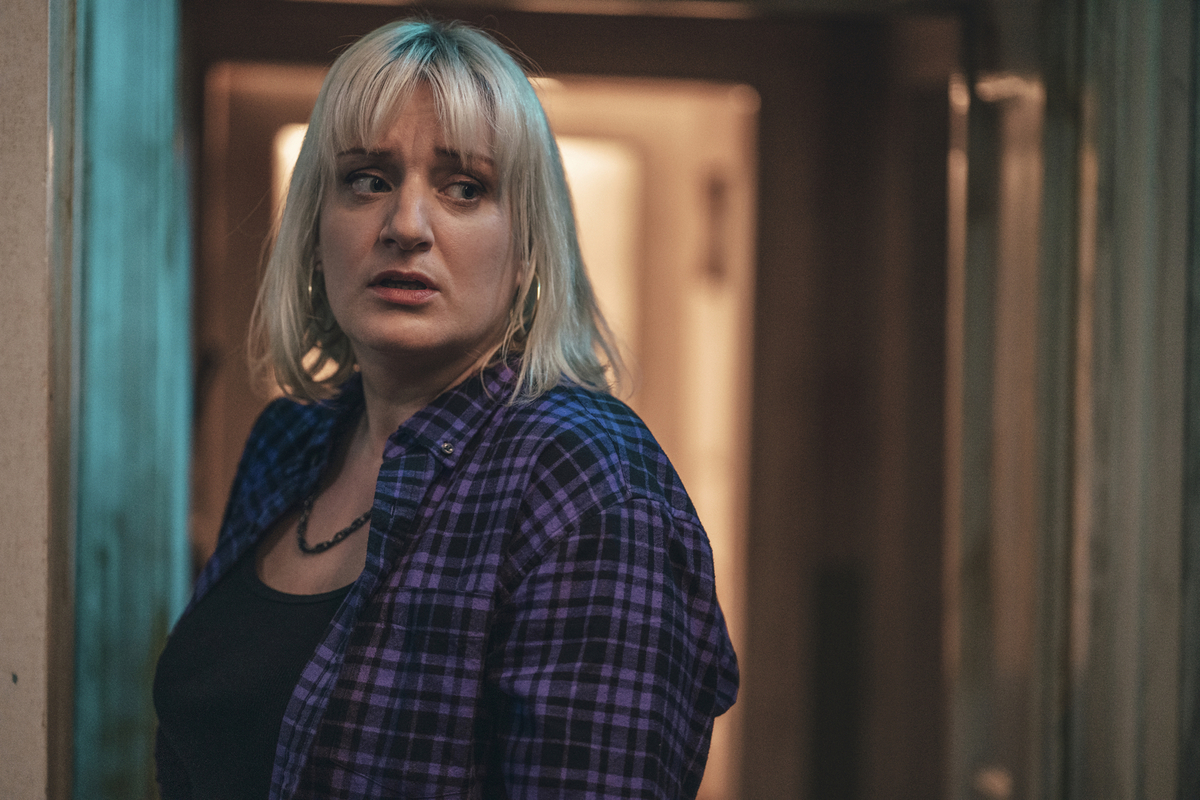
Rain Dogs rose from the ashes of an abandoned adaptation of Skint Estate. The original project was to be like for like, but, says Carraway, “I was having reservations about the project at that time, just because of the way that the book was treated by the press."
A traumatic Guardian investigation after the release of her memoir accused Carraway of literary fraud, and the book of being more fantastical than factual. The investigation was later removed from The Guardian after it was proven to be false. But the scars remained. Carraway was fearful of a similar reception to a TV show based on the memoir, and so she pulled the plug on the adaptation. “I’d moved on,” she says, firmly. “I had told the story in the book, and my life had changed significantly after. I just didn't want it all dragged up. I was ready to tell different stories.”
As she told the network she didn’t want to do Skint Estate, she pitched a different show. This new project would be set in a similar world, but not so personal, drawing on her experiences, but not mirroring them. She was told to write two scripts concreting her idea and come back. When Daisy May Cooper read the drafts and confirmed she wanted to star as Rain Dogs protagonist Costello Jones, the commissioning light clicked from amber to green.
Rain Dogs centres around a loving, destructive and dysfunctional found family, with single mum Costello at the core. She’s swimming against the tides to secure a stable life for her and her beloved young daughter Iris, and the water is ice cold. Set against a backdrop of abject poverty, Costello navigates homelessness, insecure jobs, and a ferocious desire to stay strong and sober for her daughter. Life is complicated further by the rich recidivist Selby, the utterly devoted and loving best friend with a choking grasp over Costello and Iris’ lives.
“We don't see interesting single mothers in TV. We don't really see that many interesting people living in poverty. If we do, it's politicised. I wanted to make it entertaining.”
Make no mistake, Rain Dogs is dark. So dark at points that it leans further and further away from comedy, only to then be quickly reeled back in by the ludicrousness of the bleak situations these characters find themselves in. In the first episode, Costello desperately searches for a place for her and Iris to stay for the night and ends up breaking into a friend’s car and bundling them both inside, before checking if her daughter has any homework to complete. Later on, as she pole dances through her shift in a neon Soho peep show, she’s propositioned by a journalist to write about her experiences whilst a homeless man masturbates in an adjacent booth. “Would you ever lie to me?” Iris asks her mother after an incident at school. Costello doesn’t bat an eyelid. “Of course I would – I love ya!”
“I think it’s self-preservation in a way,” Daisy May Cooper told HBO, referring to the zig zag balance of pathos and humour in Rain Dogs. “Because things are so awful [for Costello and Iris], you have to laugh about them, because otherwise you just won’t carry on.”
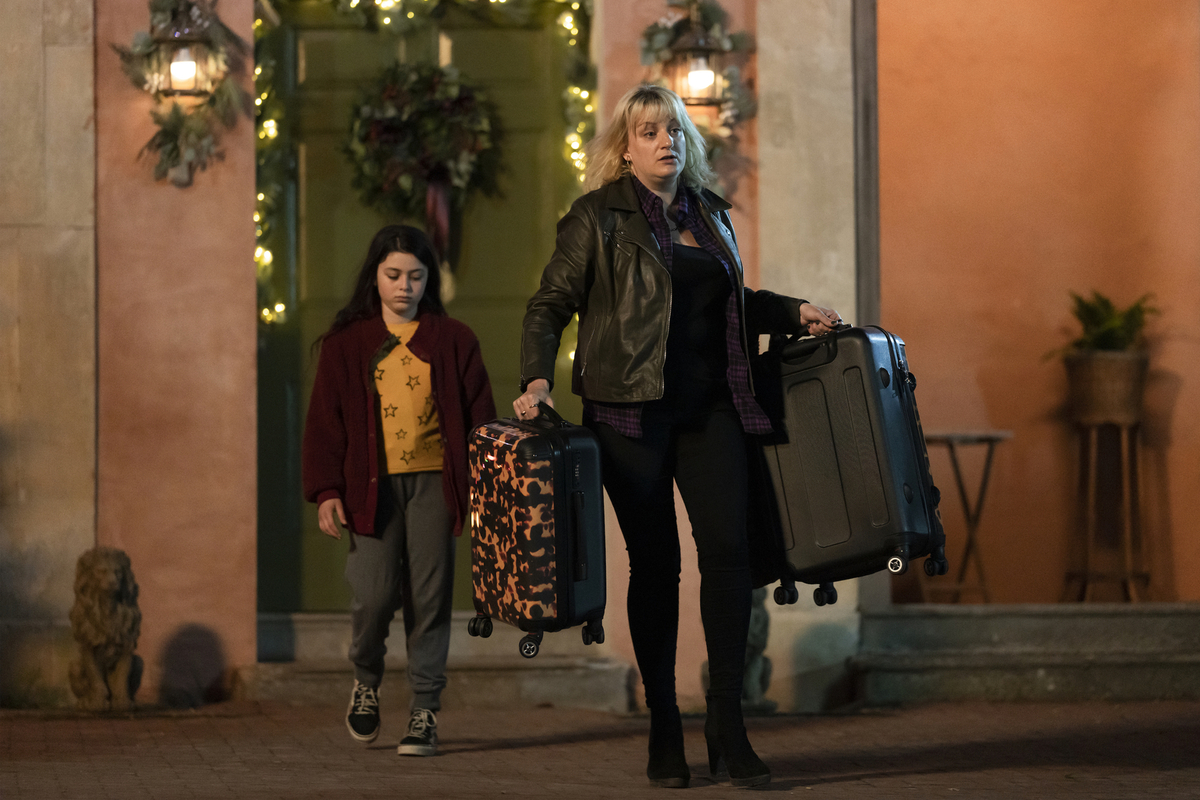
Despite the premise, this isn’t a show about being poor. Poverty is simply the canvas on which Rain Dogs is painted. “We don't see interesting single mothers in TV,” Carraway explains. “We don't really see that many interesting people living in poverty. And if we do, it's politicised. I wanted to make it entertaining.” For Carraway, Rain Dogs is about leaving behind ‘poverty porn’, and just enjoying these characters for who they are, “rather than them being an example of social realism, or a state of the nation address.”
During a quick turn around the Power Station, Carraway points to the Churchill Gardens estate on the north bank of the river Thames, mentioning that her and her daughter had once lived there on their journey to find a suitable home. I can’t help but visualise the opening scene of Rain Dogs: Costello and Iris being evicted from a flat in a near identical 1960s high rise London council block, quickly stuffing their belongings in bin bags as they leave.
But Carraway doesn’t like comparing. She’s keen to stress Rain Dogs is not autobiographical, even if it does borrow plenty of her own colourful experiences. “I've had an interesting life,” she says. “And I picked up lots of interesting stories along the way. It would be remiss not to exploit those experiences.” She names some of her favourite authors: Bret Easton Ellis, Charles Bukowski, Jeffrey Bernard. “People who always took their lives and turned it into something interesting.”
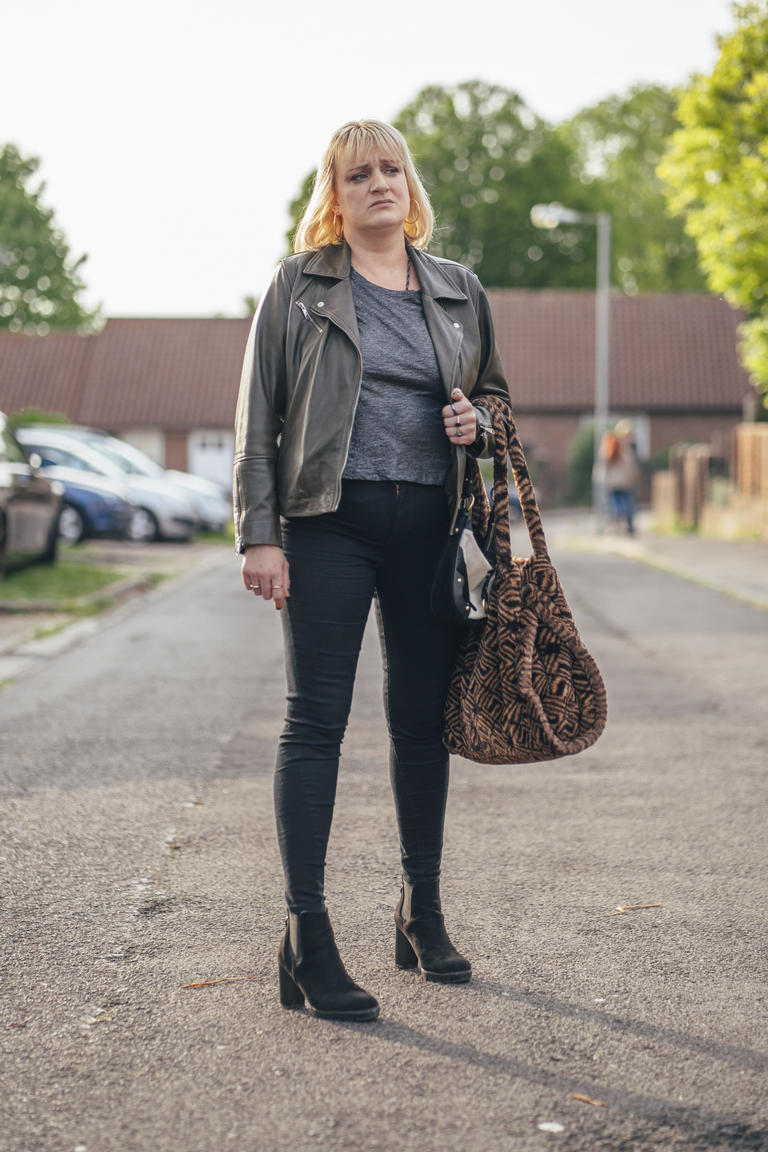
“I've had an interesting life, and I picked up lots of interesting stories along the way. It would be remiss not to exploit those experiences.”
Does she think people want Rain Dogs to be autobiographical? “Of course they do. Because we’re nosy as humans,” Carraway says. “We want to see other people's experiences, their misery and pain.” I ask what Carraway thinks it says about audiences that they try to make that connection if TV characters and their creators share similarities. “I don't think people are trying to undermine Rain Dogs by saying that it's autobiographical, but I think it does undermine it slightly,” she explains. “It suggests that I’m not creative, or that I’ve had no input in the story.” In truth, Carraway’s personal ties to the narrative make it stronger. She’s faced many of the glaring class and gender inequalities that paralyse Costello Jones in Rain Dogs, and injects that realism into the script. “I guess it's just that most writers haven't had the humiliation of having to write a memoir before,” she sighs.
Carraway tells me that creating these working-class characters was challenging. “TV is run by people who went to boarding schools,” says Carraway, explaining how difficult it was making sure the struggles of Costello and Iris were understood by the people entrusted with realising the script. The authenticity needed to be protected. That fear of politicisation was always lurking, and she had to fight hard to ensure her vision didn’t become caricatured. “The TV industry often use working-class stories to teach people what that life is like, rather than actually creating something entertaining,” Carraway notes. “But I guess we live in tick box times, which is beneficial to someone like me. Because it means I get a chance.”
Rain Dogs is available to watch now on Max and BBCiPlayer.

